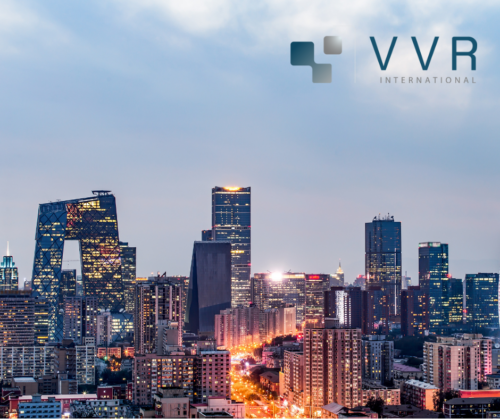October is a special month in China: because of the Mid-Autumn festival and the National Day (the 1st of October), Chinese enjoy a week-long holiday. Some go on travelling, but most still use this rare holiday time to gather with their family. Life in China follows a calendar quite different from the Western one… This month’s article will give you a short presentation of the most important celebrations in the Chinese society, explaining not only their meaning but most importantly their impact on contemporary China. Indeed, when doing business in a country, it is essential to know about that aspect of culture, in order to seize the induced opportunities (in retail for instance), but also to understand and anticipate increase or decrease in your local activity.
To begin with, most of Chinese celebrations are linked to the Chinese lunar calendar (that also explains why they never fall on the same date). Then, some of the international day-offs are celebrated in China (women day, labor day, mother’s day, father’s day…), but their importance is likely to be different from that in the West. Lastly, a third kind of celebrations emerged during the last decade that can be compared to sales in Europe: economic actors (mostly e-commerce platforms) each launched their own annual celebrations, such as the 11/11 from Alibaba.
October
Thus, in October, Chinese enjoy one week of holidays. If these long-holidays gather two celebrations, the Mid-Autumn festival and the National Day, most of the festivities revolve around the Mid-Autumn festival, also called the Moon Festival as this is the time of the year when the Moon is the closest to the Earth. Without entering into the details of Chang’e and Hou Yi’s story which gave birth to this festival, the Moon festival is a time of family gathering, and that’s when the famous mooncakes are shared. These mooncakes can take all forms and all tastes and are sometimes incredibly expensive!
November
In November, people « celebrate » the single day. Originally a day for single people, it was popularized by Alibaba in 2009 as a consumption festival: on that day, Alibaba will offer on their e-commerce platforms incredible promotions, mostly for fashion, F&B, cosmetics, and house appliances products (see VVR’s article on this topic). Because of the popularity of this commercial operation, JD.com also launched their 11/11 : 11 days of sales… preceding Alibaba’s 11/11.
December
December is synonym of Christmas in China too, but this celebration has nowhere the same impact nor the same scope as it has in the West. In China, it is mostly about decorating the streets, the malls, one’s house and sometimes buying presents for the kids (this happens in first-tier cities mostly). In families that are the most open to the world, December might also be a moment to enjoy the Christmas delicacies imported from the West.
January-February
The Chinese New Year (or Spring Festival) is the most important celebration of the year. Happening between the end of January and mid-February, depending on the lunar calendar, these celebrations which last two weeks are the equivalent of our Christmas and New Year. On this occasion, Chinese people enjoy their second one-week long holidays. Just like the October’s week, it is either an opportunity for travelling, or one to return home. These celebrations are rather peculiar as, for one to two weeks, Chinese big cities are emptied, train stations crowded, and most of the businesses and plants are closed. In terms of celebrations, the arrival of Spring is welcomed by several festivities, which end in the Lantern Festival, with diverse traditions: firecrackers (now forbidden in the large cities), Chinese dumplings, sticky rice balls on the eve of the Lantern Festival…, with feasts and with the exchange of gifts (the famous hongbaos: red enveloppes filled with money). For a businessman, it is important to know that while the time preceding the Chinese New Year is not recommended for new undertaking, the time that follows it is favorable to big changes and decisions.
March
On the 8th of March, China celebrates the International Women’s Day in a way that is not common in the West. Indeed, some companies give a half-day holiday to their female employees, and others offer them gifts. These traditions are less common among international companies: while not mandatory, they remain appreciated.
April
Beginning of April, Qingmingjie is another of the most important celebrations in the lunar calendar. Also called the Tomb Sweeping Festival, it is the day for Chinese people to pay tribute to their dead ones. Enjoying some days off for this occasion, they gather on their ancestors’ graves, share a picnic, clean the grave and make offerings. Yet, this festival also celebrates life and renewal. Therefore, after visiting their ancestors, Chinese enjoy outdoor activities such as flying kites.
May
After Qingmingjie comes the Labor Day, the 1st of May. Its importance is self-evident in China and bears a strong political meaning. Workers enjoy one day off and many defiles are organized in the cities.
June
Next comes the Dragon Boat Festival in June (depending on the lunar calendar). This festival is mostly known for its dragon-headed boats competitions which became a national sport in China and even exported themselves to cities like London. Originally paying a tribute to a great official of Ancient China, the Dragon Boat festival is a celebration of courage. When the sun is at the zenith, it is said to be the most favorable time of the year to try out new things. When it comes to food, the Dragon Boat Festival is the time of songzis, triangular sticky rice cakes stuffed with diverse delicacies and packed in a bamboo leaf. Just like our Christmas chocolates, songzis can be found in Chinese shops two weeks before the festival, and two weeks after.
August
The Western February’s Valentine’s Day is celebrated in the more internationalized cities. Yet, the Chinese Lover Day comes around September, on the 7th day of the 7th month of the year to be precise (according to the lunar calendar). Given the popularity of romantic behaviors (often identified with France), offering something to one’s beloved is a must-do.
All in all, days-off are an opportunity (often one of the only) for Chinese to go on holidays. The October’s Golden Week or the Spring Festival are thus important opportunities for the touristic industry and related sectors: France is still one of the first destination for Chinese tourists, whose incomes are increasing. During shorter holidays or for those families that have less income, Chinese festivals are a time of family gatherings and leisure. In all cases, abundant dinners will be prepared on these dates, with the specialties linked to the festival but also with high quality, premium products. Chinese celebrations are thus moments when Chinese consumers are willing to spend more to get premium products, a direct opportunity for European F&B businesses that often have this positioning on the Chinese market. Besides these direct opportunities, knowing the Chinese calendar is essential to understand some of the Chinese imaginary: Chinese New Year is synonym of family gathering and undertakings, Qingmingjie is about renewal and Dragon Boat Festival is assimilated with outdoor sportive activities. While some foreign companies go as far as to offering their own mooncakes and songzis (like Starbucks), which might not be needed nor even recommended for all businesses, it is important to, at least, be aware of this imaginary when designing a marketing strategy in F&B and other consumer goods.
By Manon Bellon
Image credits : Le Petit Journal








